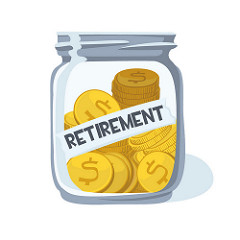What is the cause of the great retirement?

Since the pandemic, many of us have been forced to leave our jobs due to prolonged COVID-19 illnesses, a failing National Health Service, and declining mental health. At least, that’s what the debate suggests.
One of the most widely discussed societal trends of 2022 has been the “Great Retirement.” A shocking number of retirees have left the labor force since the outbreak. According to the latest government statistics, the number of “economically inactive” (i.e., persons who are neither working nor actively seeking employment) Americans in the United States has increased by roughly 300,000. The United Kingdom also appears to be at odds with the rest of Europe, where the number of elderly workers has recently increased rather than decreased.
There has been a widespread acceptance of ill health as the primary cause of retirees’ inability to work for some time.
But we never got the impression that this was the complete story. Perhaps a substantial portion of the elderly workforce decided to retire early, cashing in on the security-related and housing-market-related savings they had amassed. Why is the United Kingdom doing so much worse than the rest of Europe?
To get to the bottom of this, we polled 3,000 over-fifties in the US, the UK, and Germany, as well as a booster sample of 1,500 persons between the ages of 50 and 64 who are now unemployed to understand better the causes of the migration of older workers from the labor field.
Outcome of the Analysis
First, contrary to widespread belief in the media, declining health is not the primary factor leading to retirement among the nation’s senior workforce. Most British citizens aged 50-64 who have stopped working since 2019 cite early retirement or family duties as their primary reasons for being economically inactive, while only 16% cite long-term illness or disability.
Our poll found that economically inactive people between the ages of 50 and 64 in the UK were more likely to say the pandemic had improved their financial situation (18%) than their counterparts in the United States (8%) and Germany (4%).
The ability to retire early is directly tied to the homeowner’s level of financial security, with both homeownership and housing wealth playing significant roles.
Additionally, the vast majority of economically inactive Britons over 50 (80% of those in their late fifties/early sixties) have no desire to get back into the workforce.
In line with our polling, this suggests that the pandemic had a more significant impact on the British population, leading a larger share of those aged 50 and up to review their priorities and reduce their time at the office. Compared to 74% in the US and 73% in Germany, 58% of over-fifties in the UK express job satisfaction.
Because so many people appear to have voluntarily retired early, our data reveal a more complicated policy dilemma than if health were the primary issue. Think about the following implications for the future:
Health may not initially appear to play a significant role in this narrative, but it does. According to our research of longitudinal data, the number of sick and disabled older Britons returning to work has decreased since before the pandemic. Our survey indicated that Brits are more likely to blame the NHS for declining healthcare access after the pandemic than Germans or Americans. There is an immediate need to improve our healthcare system.
Second, business owners: many retirees dislike working for you. Some people may be pushed over the edge and encouraged to retire early due to long commutes, difficulties managing work and caring obligations, a lack of career advancement opportunities, and ageism in the workplace. People over age 50 may feel more fulfilled in their careers if there were more opportunities for flexible scheduling, telecommuting, and caregiving leave. Sixteen percent of non-workaholics between the ages of 50 and 64 in the United Kingdom indicated they might change their minds about going back to the office if they had the option to do it from home some or all of the time. However, 14% indicated that if they could have more flexible hours, it would make them think again.
Ultimately, the government may need to be patient. As the cost of utilities and groceries continues to rise, some retirees may decide to quit the labor market before they had planned. By 2023, as people’s savings dwindle, the Great Retirement will have turned into the Great Unretirement.
Contact Information:
Email: [email protected]
Phone: 9568933225
Bio:
Rick Viader is a Federal Retirement Consultant that uses proven strategies to help federal employees achieve their financial goals and make sure they receive all the benefits they worked so hard to achieve.
In helping federal employees, Rick has seen the need to offer retirement plan coaching where Human Resources departments either could not or were not able to assist. For almost 14 years, Rick has specialized in using federal government benefits and retirement systems to maximize retirement incomes.
His goals are to guide federal employees to achieve their financial goals while maximizing their retirement incomes.






